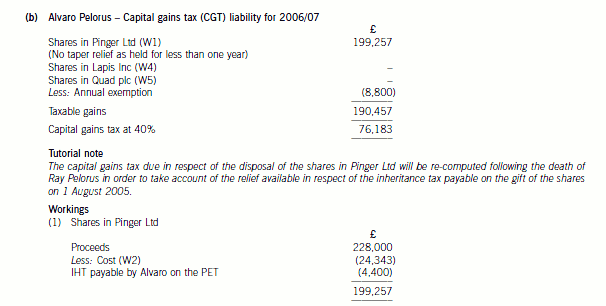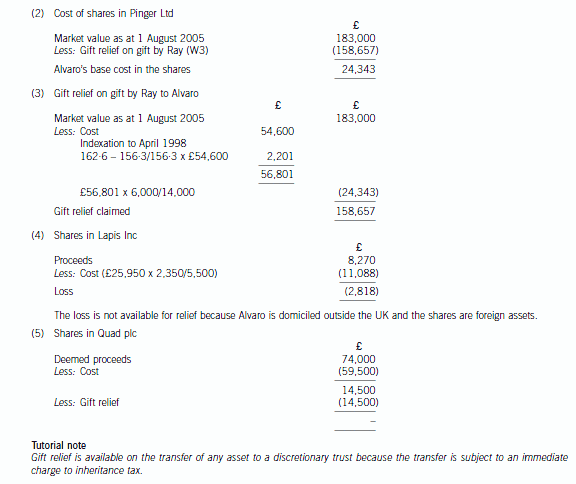考试难度大,通过率低,为什么大家都要报考ACCA?
发布时间:2020-03-07
ACCA考试科目较多(16门),且采用全英文答题模式,属于难度比较高的考试。尽管考试难度不低,但是每年的ACCA考试热度不减,这也让一些小伙伴不禁询问为什么大家都要报考ACCA。鉴于此,51题库考试学习网在下面为大家带来有关2020年ACCA会员就业前景的相关信息,以供参考。
首先,是因为ACCA具有完善的课程培训。ACCA的课程就是根据现时商务社会对财会人员的实际要求进行开发、设计的,尤其是注意培养学员的分析能力和在复杂条件下的决策、判断能力。这些课程能够显著提升学员的能力。因此,ACCA课程所带来的系统的、高质量的培训会给予学生真才实学,让学员学成后能适应各种环境,并使会员成为具有全面管理素质的高级财务管理专家。而这也是ACCA会员拥有高薪待遇的主要原因。
除了培养方向外,ACCA会员的高含金量还与ACCA在国际上的地位有关。ACCA属于国际专业会计师组织,在国际上享有很高的声誉,与众多国际知名企业建立了密切的合作关系,比如跨国企业、各国地方企业、其他会计师组织、教育机构、以及联合国、世界银行等世界性组织。这些组织和企业都能给予学员优厚的待遇。
那么,ACCA会员的就职方向是哪些呢?ACCA学员毕业后的就职方向:外资银行金融投资分析师;跨国公司的财务、内审、金融、风险控制岗位;国际会计师事务所的审计师、咨询师岗位;国内境外上市公司的财务、金融分析岗位;国内审计师事务所的涉外部门主管等。这些岗位都属于涉外岗位,因此都能带来很好的薪资待遇。
另外,ACCA会员的高含金量还体现在这些方面:
首先,ACCA会员资格在国际上得到广泛认可,尤其得到欧盟立法以及许多国家公司法的承认。因此可以说,拥有ACCA会员资格,就拥有了在世界各地就业的“通行证”。在世界上的很多国家,ACCA会员就是许多公司青睐的人才。
其次,ACCA会员在工商企业财务部门、(四大)审计/会计师事务所、金融机构和财政、税务部门从事财务以及财务管理工作,ACCA会员中有很多在世界各地大公司担任高级职位(财务经理、财务总监CFO,甚至总裁CEO)。因此,ACCA会员的就业前景是非常好的。
此外,ACCA还受到在中国的跨国公司、大型企业和国际“五大”会计公司全面认可。总的来说,ACCA学员年薪在中国50-100万RMB。
以上就是关于ACCA就业前景的相关内容。51题库考试学习网提醒:ACCA考试难度很大程度上来源于坚持,较多的考试科目很容易让人放弃,因此小伙伴们在备考时一定要坚定信念哦。最后,51题库考试学习网预祝准备参加2020年ACCA考试的小伙伴都能顺利通过。
下面小编为大家准备了 ACCA考试 的相关考题,供大家学习参考。
(ii) Discuss TWO problems that may be faced in implementing quality control procedures in a small firm of
Chartered Certified Accountants, and recommend how these problems may be overcome. (4 marks)
(ii) Consultation – it may not be possible to hold extensive consultations on specialist issues within a small firm, due to a
lack of specialist professionals. There may be a lack of suitably experienced peers to discuss issues arising on client
engagements. Arrangements with other practices for consultation may be necessary.
Training/Continuing Professional Development (CPD) – resources may not be available, and it is expensive to establish
an in-house training function. External training consortia can be used to provide training/CPD for qualified staff, and
training on non-exam related issues for non-qualified staff.
Review procedures – it may not be possible to hold an independent review of an engagement within the firm due to the
small number of senior and experienced auditors. In this case an external review service may be purchased.
Lack of specialist experience – where special skills are needed within an engagement; the skills may be bought in, for
example, by seconding staff from another practice. Alternatively if work is too specialised for the firm, the work could be
sub-contracted to another practice.
Working papers – the firm may lack resources to establish an in-house set of audit manuals or standard working papers.
In this case documentation can be provided by external firms or professional bodies.
4 Assume today’s date is 5 February 2006.
Joanne is 37, she was born and until 2005 had lived all her life in Germany. She recently married Fraser, aged 38,
who is a UK resident, but who worked briefly in Germany. They have no children.
The couple moved to the UK to live permanently on 9 October 2005. Joanne was employed by an American company
in Germany, and she continued to work for them in the UK until the end of November 2005. Her earnings from the
American company were £5,000 per month. Joanne has not remitted any of the income she earned in Germany prior
to her arrival in the UK.
Joanne resigned from her job at the end of November 2005. The company did not hold her to the three months notice
stipulated in her contract, but still paid her for that period. In total, Joanne paid £4,200 in UK income tax under PAYE
for the tax tear 2005/06.
Joanne also wishes to sell the shares she holds in a German listed company. The shareholding cost the equivalent of
£3,500 in September 1986, and its current value is £21,500. She intends to sell the shares in March 2006 and to
invest the proceeds from the sale in the UK. Joanne has made no other capital disposals in the year.
Prior to her leaving employment, Joanne investigated the possibility of starting her own business providing a German
translation service for UK companies, and took some advice on the matter. She paid consultancy fees of £5,000
(excluding value added tax (VAT)) and bought a computer for £2,000 (excluding VAT), both on 23 October 2005.
Joanne started trading on 1 December 2005. She made sales of £2,000 in December, and estimates that her sales
will rise by £1,000 every month to a maximum of £7,000 per month. Joanne believes that her monthly expenses of
£400 (excluding VAT) will remain constant. Her year end will be 31 March, and the first accounts will be drawn up
to 31 March 2006.
Although Joanne has registered her business for tax purposes with the Revenue, she has not registered for VAT and
is unsure what is required of her in this respect.
Required:
(a) State, giving reasons, whether Joanne will be treated as resident or non-resident in the UK for the year of
assessment 2005/06, together with the basis on which her income and gains of that year will be subject to
UK taxation. (3 marks)
(a) Joanne will be treated as UK resident from the day she arrives in the UK, as she has stated her intention to move permanently
to the UK. Her income from this point will be taxable in the UK, although she will receive a full personal allowance
(unapportioned) for the year. Income earned in the UK will be taxable, but income earned abroad in Germany will not be
taxed unless it is remitted to the UK.
Although Joanne is UK resident, she is not UK domiciled. Thus, while capital gains on UK assets will be taxable, gains on
assets held overseas are taxable only to the extent that the proceeds of the sale are remitted to the UK. As Joanne intends to
remit the proceeds from selling her shares in Germany, the gain will be taxable in the UK.
(d) Advise Trent Limited of the consequences arising from the submission of the incorrect value added tax (VAT)
return, assuming that the company has previously had a good compliance record with regard to accounting
for VAT. (6 marks)
(d) Default surcharge
Although the VAT return was submitted on time (i.e. within one month of the end of the tax period), part of the quarterly VAT
liability has not yet been paid. As a result this payment will be made late and a surcharge liability notice will be issued on
the company. The surcharge period will run from the date of the notice until the anniversary of the end of the period for which
the VAT was paid late (i.e. until 31 March 2007). During this period any further default will extend the surcharge period and
any further late payments of VAT will attract a surcharge penalty of 2% on the first occasion, rising to 15% for successive late
payments.
Mis-declaration penalty
As the return understates the VAT payable, a potential mis-declaration penalty arises. The amount understated exceeds 30%
of the sum of the true input tax and output tax, known as the gross amount of tax (GAT) ((30% of (87,500 + 55,000) +
40,000) = 54,750). There has, thus, been a significant understatement of the true VAT return liability, resulting in a penalty
rate of 15% of the VAT which would have been lost had the error not been discovered. However, where an under declaration
arises out of a true error i.e. there is no intention to evade tax involved, and it is voluntarily disclosed, then a mis-declaration
penalty is not normally imposed. Although the company is still within the ‘period of grace’ allowed by HMRC for the correction
of errors in the next following VAT return, it would be advisable for Trent Limited to notify HMRC of the error immediately, in
writing, unless it has a ‘reasonable excuse’ for the error having occurred.
Default interest
Default interest is chargeable when an assessment to VAT arises for an amount that has been under declared in a previous
period, whether as a result of voluntary disclosure or as identified by HMRC. Interest is charged on a daily basis from the
date the under declaration should have been declared (i.e. 1 May 2006) to the date shown on the notice of assessment or
notice of voluntary disclosure. As given the size of the error the de minimis relief for voluntarily declared errors of less than
£2,000 is not applicable, the only way for Trent Limited to minimise the interest charge is by means of early disclosure and
payment of the additional VAT due.
(b) Calculate Alvaro Pelorus’s capital gains tax liability for the tax year 2006/07 on the assumption that all
available reliefs are claimed. (8 marks)


声明:本文内容由互联网用户自发贡献自行上传,本网站不拥有所有权,未作人工编辑处理,也不承担相关法律责任。如果您发现有涉嫌版权的内容,欢迎发送邮件至:contact@51tk.com 进行举报,并提供相关证据,工作人员会在5个工作日内联系你,一经查实,本站将立刻删除涉嫌侵权内容。
- 2019-07-20
- 2020-01-10
- 2020-01-10
- 2020-01-10
- 2020-03-26
- 2020-04-21
- 2020-01-10
- 2020-01-10
- 2020-08-16
- 2020-01-10
- 2020-02-18
- 2020-01-10
- 2020-08-14
- 2020-03-25
- 2020-03-08
- 2020-01-10
- 2020-01-10
- 2020-01-09
- 2020-04-10
- 2020-01-10
- 2020-05-07
- 2020-05-19
- 2020-01-10
- 2020-04-15
- 2020-04-14
- 2020-02-06
- 2020-01-10
- 2020-01-10
- 2020-04-05
- 2020-03-08